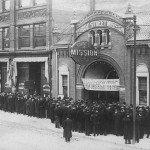
For a system that is supposed to rehabilitate personal finances and set debtors back on their feet, Chapter 13 nationwide is schizophrenic about on- going retirement savings. We’re divided about whether post petition contributions to retirement accounts preclude confirmation of a Chapter 13 plan.
Are 401(k) Contributions Disposable Income Or Not?
Too many courts, in my opinion, come down barring voluntary provisions for old age for the 5 year duration of a Chapter 13 plan, regardless of the age or retirement-readiness of the debtor. The plan will dispose of debts, but spit the debtor out of bankruptcy to face penury at retirement.
So, three cheers for Judge Marvin Isgur, SD Tex. , for his straightforward analysis in Perkins, 22-20025 (Bankr. S.D. Texas April 6, 2023), finding that §1306 incorporates the exclusions from property of the estate found in §541(b). Thus, post-petition contributions to an employer-sponsored 401(k) plan were not property of the Chapter 13 estate, and therefore not included in projected disposable income.
Confirmation still required good faith, which Judge Isgur found in the non-bankruptcy contribution limits in the Internal Revenue Code. “It is difficult to find a lack of good faith when a debtor makes post-petition 401(k) contributions less than the IRS limit”, he wrote.
Excluded from the estate
After acknowledging the less-than-stellar drafting of §541(b)(7), to wit:
(7)any amount—
(A)withheld by an employer from the wages of employees for payment as contributions—
(i)to—
(I) an employee benefit plan that is subject to title I of the Employee Retirement Income Security Act of 1974 or under an employee benefit plan which is a governmental plan under section 414(d) of the Internal Revenue Code of 1986;
(II) a deferred compensation plan under section 457 of the Internal Revenue Code of 1986; or
(III) a tax-deferred annuity under section 403(b) of the Internal Revenue Code of 1986;
except that such amount under this subparagraph shall not constitute disposable income as defined in section 1325(b)(2); …
Isgur found that §1306’s definition of property of the Chapter 13 estate incorporates the whole of §541, including the exceptions found in §541(b)(7). He rejected cases that found that the exclusions were limited to property on hand at the commencement of the case.
“The bankruptcy estate is constantly in flux as the debtor’s earnings are pulled in and then paid out to creditors, so it cannot be thought of as a static set of assets that can be fully defined at the commencement of the case. Applying § 541(b)(7) “on an ongoing basis” as the debtor is paid is ‘more consistent with the dynamic nature of chapter 13 cases.’ Egan, 458 B.R. at 845.” In re Perkins, No. 22-20025, at *9 (Bankr. S.D. Tex. Apr. 6, 2023).
Beyond the statutory text
Adoption of Judge Isgur’s analysis nationwide would go a long way to making Chapter 13 more palatable to those in financial trouble. In too many places, Chapter 13 is the modern equivalent of debtor’s prison: your sentence is five years; anything good that happens in your financial life benefits your creditors; you can’t pay off your plan early lest creditor lose their bite out of any improvement in your financial fortune; and you can’t make provision for your inevitable old age.
Or, Congress could recognize saving for retirement as an “other necessary expense. ” Even Judge Isgur’s Perkins decision benefits only those debtors whose employers offer retirement savings options; those who must provide for old age outside the employment relationship are left out.
It is painful as a professional to have to maneuver in a legal system that shrugs off the consequences of our ever-longer lives.
More
When retirement assets are property of the estate







